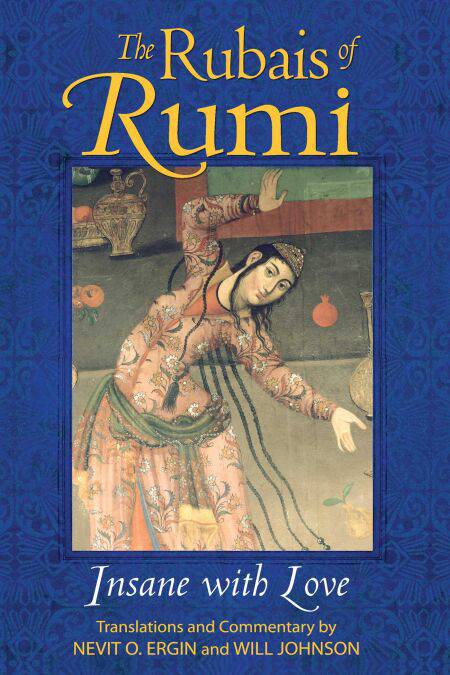
- Afhalen na 1 uur in een winkel met voorraad
- Gratis thuislevering in België vanaf € 30
- Ruim aanbod met 7 miljoen producten
- Afhalen na 1 uur in een winkel met voorraad
- Gratis thuislevering in België vanaf € 30
- Ruim aanbod met 7 miljoen producten
Zoeken
€ 14,53
+ 14 punten
Uitvoering
Omschrijving
The first English translation of the rubais of Rumi
• Presents 233 of the most evocative of Rumi’s 1,700 rubais
• Shows that the mystical embrace is the way to directly experience the Divine
Rumi is well known for the over 44,000 verses that appear in a 23-volume collection called the Divan-i Kebir. Yet Rumi also composed 1,700 rubais, short aphorisms and observations, whose depth and message belie their brevity.
The form of rubais first became well known through the 11th-century collection The Rubaiyat of Omar Khayyam. But unlike Khayyam, who like most poets would sit and carefully craft each word, Rumi would compose and speak his poems through the spontaneous “language of poetry” that poured from his lips as he traveled the streets of Konya, Anatolia (present-day Turkey). Very few of Rumi’s rubais have been translated into any of the languages of the contemporary Western world. Now, Nevit O. Ergin, the translator of the complete Divan-i Kebir, and Will Johnson present here 233 of the most evocative of Rumi’s 1,700 rubais.
Rumi’s poetry expresses profound and complex truths in beautiful yet simple language. He reveals that by going deep into the interior of our heart and soul, we can arrive at a place in which we once again merge and connect with the divine. This mystical quest, Rumi contends, is the birthright of us all. Anything less than a complete dissolving into the world of divine union will not provide the satisfaction and peace that we all seek. The simple, yet profound spiritual truths and visions contained in The Rubais of Rumi lead the way to the path of reconnection to the direct energies of God.
• Presents 233 of the most evocative of Rumi’s 1,700 rubais
• Shows that the mystical embrace is the way to directly experience the Divine
Rumi is well known for the over 44,000 verses that appear in a 23-volume collection called the Divan-i Kebir. Yet Rumi also composed 1,700 rubais, short aphorisms and observations, whose depth and message belie their brevity.
The form of rubais first became well known through the 11th-century collection The Rubaiyat of Omar Khayyam. But unlike Khayyam, who like most poets would sit and carefully craft each word, Rumi would compose and speak his poems through the spontaneous “language of poetry” that poured from his lips as he traveled the streets of Konya, Anatolia (present-day Turkey). Very few of Rumi’s rubais have been translated into any of the languages of the contemporary Western world. Now, Nevit O. Ergin, the translator of the complete Divan-i Kebir, and Will Johnson present here 233 of the most evocative of Rumi’s 1,700 rubais.
Rumi’s poetry expresses profound and complex truths in beautiful yet simple language. He reveals that by going deep into the interior of our heart and soul, we can arrive at a place in which we once again merge and connect with the divine. This mystical quest, Rumi contends, is the birthright of us all. Anything less than a complete dissolving into the world of divine union will not provide the satisfaction and peace that we all seek. The simple, yet profound spiritual truths and visions contained in The Rubais of Rumi lead the way to the path of reconnection to the direct energies of God.
Specificaties
Betrokkenen
- Uitgeverij:
Inhoud
- Aantal bladzijden:
- 224
- Taal:
- Engels
- Reeks:
Eigenschappen
- Productcode (EAN):
- 9781594777431
- Verschijningsdatum:
- 16/07/2007
- Uitvoering:
- E-book
- Beveiligd met:
- Adobe DRM
- Formaat:
- ePub

Alleen bij Standaard Boekhandel
+ 14 punten op je klantenkaart van Standaard Boekhandel
Beoordelingen
We publiceren alleen reviews die voldoen aan de voorwaarden voor reviews. Bekijk onze voorwaarden voor reviews.







